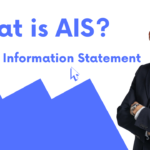
Income Tax Services!
Experienced Chartered Accountants and team working on your Income tax returns to make sure you are up-to-date with all your Income tax compliances and Accounts.
More than 1600+ no error returns filed previous year before time, so that your Income tax officer stays happy.
To get started please fill out the form in case you don’t want to go through the whole page, and expert will be on call with you.
Office contact number: 9702403702
#SayYesToCompliance
Income Returns Filed
0Previous Year
Public limited’s Returns Filed
0Previous Year
Income Tax Cases Settled
0Previous Year
Why we are better together!
What makes us different from other online consultants,
and what makes us a great team together
Documents Needed for Filing Income Tax Returns in India
For Salaried Employees
If you are a salaried employee, gather these documents to e-file your income tax returns in India. Go through this list to see the documents you’ll need to do your taxes.
– PAN
– Form-16 issued by your employer
– Month wise salary slips From the AY 2019-20,
it is essential to gather the information on all taxable allowances received and the amount claimed as exemption out of such allowances e.g., house rent allowance, leave travel allowance etc and disclose the same in the IT return. Did you know that Form-16 is all you need to e-file your income tax returns on Pevok.com? It’s that simple really. Got your Form-16? Start income tax e filing.
Documents related to interest income
– Bank statement/passbook for interest on a savings account.
– Interest income statement for fixed deposits.
– TDS certificate issued by banks and others.
Pevok.com automatically gives you a tax benefit as per Section 80TTA when you provide your income from savings account interest. You won’t need all the documents listed here as they vary on a case-by-case basis. Form 26AS Form 26AS is a summary of taxes deducted on your behalf and taxes paid by you. This is provided by the Income Tax Department. It shows details of tax deducted on your behalf by deductors, details on tax deposited by taxpayers and tax refund received in the financial year. This form can be accessed from the I-T Department’s website. Learn how to access your Form 26AS.
Section 80 Investments
Section 80C investment documents. The investment made under PPF, NSC, ULIPS, ELSS, LIC qualify for deductions under Section 80C. Make sure you have the slips, receipts of all the investment made for tax saving purpose. Also, these documents should be preserved for a couple of years for the safe side. Documents Required to Claim the Following Expenses as Deductions Keep these documents at hand to claim the following expenses as deductions :
Your contribution to Provident Fund Your children’s school tuition fees Life insurance premium payment Stamp-duty and registration charges Principal repayment on your home loan Equity Linked Savings Scheme/Mutual funds investment The maximum amount that can be claimed under Section 80C is Rs 1.5 lakhs.
Other Investment Documents Interest paid on housing loan: Interest on a housing loan is eligible for tax saving up to Rs 2,00,000. This is for a self-occupied house. For let out or deemed let out property, there is no limit of interest on housing loan. From FY 2017-18, the total loss from house property available for set off against other income is capped at Rs 2 lakhs and therefore, interest on housing loan is eligible for tax saving up to Rs 2,00,000 for let out a property as well.
Education loan interest payments.
Stock trading statement: The stock trades that were made during the year may be taxed under Capital Gain.
Documents Required for Income Tax Returns Filing The income tax return you file is an ‘annexure less’ return, i.e. no documents or proofs are required to be attached with the returns. The Income Tax Act specifies obtaining certificates and proofs to claim deductions, which makes it ambiguous for the taxpayers as to whom they must hand over those certificates and proofs. The taxpayers must preserve those certificates and receipts for future references and need not attach or send them to anyone. In case an assessing officer (AO) sends a notice asking for documents or clarification about the transactions mentioned in the returns, the taxpayer will have to submit the proofs to the AO.
Income Tax Eligibility in India
The income Tax Act in India has classified the taxpayers into different categories as different tax rates apply to the different types of taxpayers. The taxpayers are classified as below:
– Individuals
– Hindu Undivided Family
– Association of persons, Body of the individuals & Firms
– Companies
Individuals are also classified as residents and Non-resident Indians. The resident taxpayers are liable to pay tax on the global income in India ( Both on income earned in India and Abroad). Whereas those who are identified as Nonresident Indians need to pay the taxes only on the income earned or that is accrued in India. The resident individuals are further classified based on their age group.
– Individuals who are less than 60 years of age
– Individuals between 60 to 80 years of age
– Individuals aged more than 80 years.
ITR filing benefits
The benefits of filing income tax returns vary across taxpayers. Depending on the category of taxpayer, we have enlisted the advantages of filing ITR in the following section.
Seamless processing of loans- Financial institutions asks for ITR receipts of the previous year or years during a loan application. They consider this receipt to be a supporting document to a borrower’s income statement. Therefore, it is essential to file for ITR if an individual plans on securing a home or a car loan. Salaried and self-employed individuals can benefit greatly from this since they do not have to provide any other document as income proof and easily get loan approvals.
Claiming refund- Any individual can claim a tax refund from the IT Department by filing ITR. This is highly beneficial to salaried and self-employed persons falling in a high-income bracket.
Easy visa processing- ITR receipt is vital to process visa applications. The US embassy and others ask for this receipt to know more about an individual’s tax compliance. As this document acts as proof of an applicant’s income, the embassy will check the income details and ensure he/she is capable of taking care of travel expenses. Salaried personnel and self-employed people can benefit from this by filing ITR.
Medical insurance- The IT Department offers deductions up to ₹50,000 on health insurance premiums paid in a specific fiscal year. This is under Section 80D of the Income Tax Act. Upon providing medical insurance, the senior citizens can avail of this deduction and undergo treatments without any hassle.
Loss compensation- Any company and business can incur a loss at any time during a specific fiscal year. To compensate for the loss, companies need to file IT returns. By following this procedure, one can carry forward the tax losses in the coming year. However, assessees need to file ITR before the due date to claim the losses in the future.
Avoid penalties- As mentioned earlier, it is mandatory for some individuals to file income tax returns. Timely filing ITR will help individuals and companies avoid hefty fines. If the annual income is not more than ₹5 lakhs, the IT Department levies a fine of ₹1000. The penalty can go up to ₹10,000 otherwise.
Presumptive taxation scheme- Self-employed persons can avail of this taxation scheme by filing ITR with form number 4. Professionals like architects, doctors, lawyers can consider only 50% of their income as profit and be taxed accordingly if such income is below ₹50 lakhs. Businesses with annual turnover below ₹2 crores can also adopt this scheme and declare 6% (for digital transactions) and 8% (for non-digital transactions) of their income as profit.
Interest deduction- Filing for ITR also allows interest deduction while applying for home loans. If an NRI has a rented-out or vacant property in India, it becomes a taxable property for which he/she needs to file tax returns. The benefit of filing ITR here is that the individual can enjoy a standard 30% deduction on home loan interest and property taxes.





